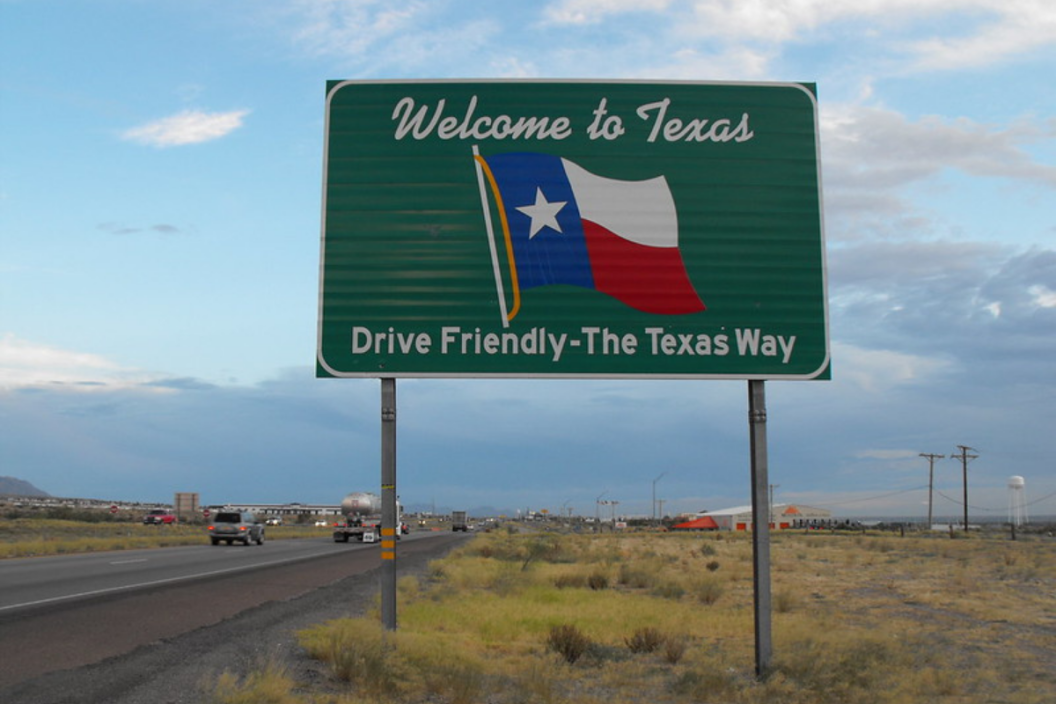The English language is a difficult language. It can give anyone trying to learn and speak it a conniption fit thanks to its habit of borrowing words from other languages. Not to mention its disparate grammar rules that are broken more often than followed. Texans, and Southern states, in general, have taken that piecemeal tongue and hammered it into something all their own.
Our pronunciation and word usage are unlike anything you'll find the world over. Now "dad gum," practice your best southern accent and follow these 12 steps to learn how to speak Texas slang that you're gonna love.
1. "Y'all" vs. "All y'all"
The first thing you need to learn if you're "fixin' tuh" speak Texan is the proper use of the plural pronoun "Y'all." "Y'all" is a contraction of "You all." Y'all refers to a group of two or more people, but if you're referring to two or more groups of people, you have to specify that. That's where the phrase "all y'all" comes in. "All y'all" can also simply refer to a large group of people; it's a fluid phrase that the whole state uses but has become more common with all Americans.
2. "Howdy" - the official Texas greeting
"Howdy" is so much more than a comical phrase uttered by Woody, the cowboy from Toy Story. Howdy is actually used as a common greeting used by true Texans. It's a mashup of "How do ye?" or, if you want to be all uptight about it, it's a way to say, "How do you do?". Don't assume it's a question, though; it's a statement. It's simply a friendly way to address both friends and strangers alike.
3. "Sorry" isn't always an apology
Being a part of the Bible Belt means that Texans have come up with some creative ways to insult one another without using expletives. You'll often hear We refer to someone as "sorry" when talking about a ne'er-do-well or an individual of questionable character. For example, you might hear someone mention their "no-account sorry excuse of an ex-husband."
4. When in doubt, shove in some extra syllables.
We really like talking in Texas, which explains our propensity to add extra syllables to some words. The person who sells your house (whether it's in Houston, Austin, San Antonio, or Dallas) is often referred to as a "Real-uh-tor," despite the fact that the word only has two syllables when pronounced properly.
5. "Bless your heart" is not a benediction.
This may sound like a prayer, but actually, it's a term of ridicule usually followed by laughter. "Bless his heart" (or "bless her heart," as the case may be) is usually uttered when someone did something stupid and got hurt (like having a hissy fit) or did something unwise and reaped a logical consequence.
Read More: Respect the Tradition: The 5 Rules of Proper Cowboy Hat Etiquette
6. Just go ahead and drop that G.
Texan elocution is not the same as it is elsewhere. We like to speak with a soft language that is easy on the ears. For that reason, we don't bother with the last letter in present participle verbs. Men don't use "chewing" tobacco in Texas. They use "chewin'" tobacco (also known as "dip").
7. There is really only one season here.
If you hear a Texan refer to "the season," they're not talking about winter, spring, summer, or fall. They're talking about football. If they refer to a season of the year, they'll specify winter, spring, summer, or fall.
8. Fixing doesn't mean repairing, it means preparing.
In Texas, when we're getting ready to do something, whether it's matrimony or a trip to the grocery store, if you're just about to do it, you're "fixin' to." (Don't forget the rule about leaving off the ending "g"). "Lauren can't come to New Orleans this summer, she's fixin' to have a baby."
9. The worst thing you can be is a damn fool.
The most vicious insult in the Texas lexicon (or the Texicon, if you will) is to call someone a damn fool. If you use this epithet, you're not joking. You think the person in question is an idiot. Not just any idiot, but the kind of idiot who should probably be kept in a quiet room with soft walls and nothing but crayons so they can't hurt themselves or others with their damn fool ways. This phrase is usually accompanied by quite a bit of head shaking in disbelief that anyone could possibly be so stupid.
10. "Lit" can mean more than cigarettes.
In the Lone Star State, if someone is leaving in a big hurry, they'll be talked about as having "lit out." For example, if you show up to someone's house as someone else is leaving and they pull out so fast they almost hit your car, you'd wonder why they lit outta there so fast.
11. Corn-fed refers to size, not food.
Everything is bigger in Texas, including Texans themselves. A really tall, broad-shouldered man is referred to as being "corn-fed." To use this phrase in a sentence, you'd probably say something like, "Blake Shelton is 6'5"?! That's one corn-fed country boy... even if he is from Oklahoma."
12. Things don't fall over in Texas, they tump over.
Another fun Texas phrase is "tump." "Tump" is a verb that refers to something being overturned. Tump is generally used to describe inanimate objects that carry things. For example, "That damn fool Bobby lit outta here pushin' Tommy along in that wheelbarrow, it hit a rock and tumped over. Now Tommy's got a broken arm and can't finish the season."
This article was originally published on June 9, 2017.




